

Insider GCSE creative writing tips + 106 prompts from past papers
by Hayley | Mar 9, 2023 | Exams , Writing | 0 comments
Are you feeling a little bit twitchy about your child’s English GCSE writing task?
Sciences and humanities – although sometimes daunting in their content – seem a fair bet as ‘revisable’ topics. But the creative writing element of the English Language GCSE is less knowable and ultimately more of a frightening prospect for a student keen to do well.
Preparing for the GCSE writing task? You don’t need to do it alone.
We run a weekly online writing club which prepares students to write high-scoring content. Our “Higher” level club is designed to transform your writing so that you can ace the GCSE language paper.
What is the GCSE writing element of the GCSE Language Paper?
There are 5 key GCSE exam boards: AQA , OCR , Pearson Edexcel , WJEC Eduqas and CCEA . Each board sets their own papers which may appear much the same at first glance (bizarrely they all have a similar front cover layout and fonts). Certainly there is plenty of overlap between their mark schemes and the comments and tips they share in their Examiner Reports.
However, as with all your child’s other subjects, it is essential to know which exam board they are preparing for. You may be surprised to discover that schools pick and choose boards by subject, perhaps choosing AQA for chemistry and OCR for mathematics. Individual school departments have their own preferences. My brother teaches at a school where their English Literature and English Language exams have been split between two different boards. This is unusual though, not the norm!
What forms (question formats) can the test take?
It varies by board.
The AQA board has a writing task in their Question Paper 1 called Explorations in creative reading and writing . Students are given two prompts to choose between. The AQA board also has a second persuasive writing task in Paper 2 called Writers’ viewpoints and perspectives.
Jump ahead to AQA creative writing and persuasive writing prompts from past GCSE papers
The Pearson/Edexcel international iGCSE favoured by many UK private schools has two prompts to choose between for each section. The student is asked to complete a piece of transactional writing (perhaps a persuasive speech or an advertisement leaflet) and additionally a piece of imaginative writing.
Jump ahead to Pearson/Edexcel transactional writing and imaginative writing prompts from past GCSE papers
Interestingly, the WJEC Eduqas board favours non-fiction writing. Unit 2 Reading and Writing: Description, Narration and Exposition gives two prompts to choose between, for an account and an essay perhaps, and Unit 3: Reading and Writing: Argumentation, Persuasion and Instructional sets up a letter, or similar.
Jump ahead to WJEC Eduqas non-fiction writing prompts from past GCSE papers
The OCR board offers two prompts to choose between. One might be a talk for other students and the other might be a letter on a difficult subject .
Jump ahead to OCR creative writing prompts from past GCSE papers
The CCEA board has a writing task in called “ Writing for Purpose and Audience and Reading to Access Non-fiction and Media Texts” and a second writing task which offers a choice between personal writing and creative writing.
Jump ahead to CCEA persuasive writing, personal writing, and creative prompts from past GCSE papers
How long do students have to craft their piece of writing?
Creative writing tests are timed at either 45 minutes or 1 hour. The last thing your child will need is to prepare to write for an hour, only to find they have just three-quarters of an hour on the day. If in doubt, insist that they check with their teacher.
AQA students are given 45 minutes to produce their writing response. The introduction advises: ‘ You are reminded of the need to plan your answer. You should leave enough time to check your work at the end.’ What this means is that 30–35 minutes max is what’s really allowed there for the writing itself.
Pearson/Edexcel allows 45 minutes for each of the two writing tasks.
OCR students are given an hour to complete this section of their exam. The introduction states: ‘You are advised to plan and check your work carefully,’ so they will expect the writing itself to take 45–50 minutes.
How long should the completed GCSE writing task be?
Interestingly, although the mark schemes all refer to paragraphingthey don’t state how many paragraphs they expect to see.
‘A skilfully controlled overall structure, with paragraphs and grammatical features used to support cohesion and achieve a range of effects’ (OCR)
‘Fluently linked paragraphs with seamlessly integrated discourse markers’ (AQA)
Why? Because management of paragraph and sentence length is a structural technique available to the student as part of their writers’ toolkit. If the number of optimal paragraphs were to be spelled out by the board, it would have a negative impact on the freedom of the writer to use their paragraphs for impact or to manage the pace of the reader.
For a general guide I would expect to see 3 to 5 paragraphs in a creative piece and 5 paragraphs in a persuasive piece. Leaflets have a different structure entirely and need to be set out in a particular form to achieve the top notes of the mark scheme.
What are the examiners looking for when they are marking a student’s creative writing paper?
There are two assessment objectives for the writing itself:
- It has to be adapted to the form, tone and register of writing for specific purposes and audiences.
- It has to use a range of vocabulary and sentence structures, with appropriate paragraphing, spelling, punctuation and grammar.
As a GCSE English nerd, I really enjoy delving deeper into the Examiner Reports that each board brings out once the previous cohort’s papers have been marked. They are a fascinating read and never disappoint…
Within their pages, examiners spell out the differences they have spotted between the stronger and the weaker responses.
For example, a creative task set by the AQA board was to describe a photograph of a town at sunset. The examiners explained that some of the strongest responses imagined changes in the scene as darkness descended. They enjoyed reading responses that included personification of the city, and those that imagined the setting in the past, or the weariness of the city. Weaker candidates simply listed what was in the picture or referred directly to the fact it was an image. This chronological-list approach weakened the structure of their work.
No surprises that some weaker students relied heavily on conversation. (As an exam marker myself, I dreaded reading acres of uninspiring direct speech.)
Pearson/Edexcel explain that weaker persuasive pieces (in this case on the value of television) simply listed pros and cons rather than developed ideas fully to clarify their own opinions. The higher-level responses here were quirky and engaging, entertaining the reader with a range of appropriate techniques and making the argument their own.
What accommodations are possible for students who have specific learning difficulties?
The UK Government’s Guide for Schools and Colleges 2022: GCSE, AS and A Levels includes information about changes to assessments to support ‘disabled students.’ Their definition of disabled includes specific learning difficulties (dyslexia, dyspraxia, ADHD, ADD, ASD etc).
Exam boards can make a wide range of adjustments to their assessments. Some of the most common adjustments are:
- modified papers (for example, large print or braille exam papers)
- access to assistive software (for example, voice recognition systems or computer readers)
- help with specific tasks (for example, another person might read questions to the student or write their dictated answers)
- changes to how the assessment is done (for example, an oral rather than a written assessment, word-processing rather than hand-writing answers)
- extra time to complete assessments
- exemptions from an assessment
The exam board will expect paperwork to be in place where your child’s specific needs are formally reported by an appropriate professional (Educational Psychologist, Clinical Psychologist, Consultant). The report needs to be recent, but how recent is difficult to confirm.
If your child is likely to need adjustments to their access arrangements you will need to discuss this with their school in plenty of time before the exam itself.
A close friend of mine realised in the final few weeks before her son’s GCSE exams that his tinnitus would have a negative impact on his performance. She approached the school to ask if he might take his exams in a separate room to minimise noise disturbance. Unfortunately, it was far too late by then to apply, and her son was denied the request.
Your child’s school will explain the process for applying for special arrangements and will be able to advise you on what your expectations should be. Never presume your child will be given what they need – but plenty of requests are successful, so stay positive and make sure your paperwork is in order beforehand.
Tips and strategies for writing a high scoring GCSE creative writing paper:
1. learn the formats.
Know the different formats and conventions of the different GCSE writing tasks. There is a standard layout for a leaflet, for example, where including contact details and a series of bullet points is part of the mark scheme. Not knowing these conventions will knock back a student’s score.
2. Plan ahead
Prepare a planning structure for each of the written forms you might encounter during the exam. It may need to be flexed on the day, but it will banish fear of the blank page and allow you to get started.
3. Prepare sentence-openings
Familiarise yourself with appropriate sentence-openings for each type of GCSE writing task. Fronted adverbials of time and place will improve the quality of a creative piece, whereas access to varied and specific conjunctions might push up the mark of a transactional piece.
4. Check your speaking
Ask your family to check your speech at home. Every now and then try to flip a sentence into formal language, using more interesting synonyms for your usual spoken vocabulary. This will help you to write formally on paper, avoiding colloquialisms.
5. Forget finishing
Finishing is less important than you might imagine. Sloppy, hurried work is your enemy. GCSE examiners will follow your clear planning and mark you accordingly, even if you’ve not managed to complete that final paragraph.
6. Note the details
The question often gives additional information the examiner would like to see included. Note it in your plan to make sure it doesn’t get forgotten.
7. Start strong
Use your best sentence-opener at the start of each paragraph. It will set you up as someone to be taken seriously.
8. Cut back dialogue
Keep dialogue contained in a single paragraph. Focus on description of the speaker and their actions before noting the second character’s reply.
9. Revise
Do this by prepping work as above. Nothing beats it.
Would you like me to transform your child’s writing in my higher writing club?
Each week in my higher writing club , we spend 20 minutes on Zoom together. After the task has been introduced, the students write for 15 minutes. Next, they upload their work for 1:1 video marking.
There is no point prepping essays/creative pieces for the GCSE English Language exam if your child’s writing is poor. First, their scruffy presentation, attention to detail, punctuation, grammar and vocabulary need to be addressed.
After 2 months in the higher writing club your child’s written technique and fluency will be transformed by our 1–2-1 video marking system (consistent messaging is achieved by matching your child with their own teacher).
Each weekly activity is drawn directly from the GCSE English Language Subject Content and Assessment Objectives , published by the English Department of Education.
Here’s an example of a student’s writing, BEFORE they joined our club:

It is chaotic, poorly-presented and nonsensical. Letter-sizing is confused and the student is clearly anxious and repeatedly scribbling through small errors.
Below is the same student 2 months later:

Observe the rich vocabulary, authorial techniques (the jagged rocks are ‘like shards of broken glass’) and general fluency and sophistication.
Real and recent GCSE example questions/prompts from each of the 5 key exam boards
Aqa english language gcse questions, paper 2 writers’ viewpoints and perspectives:.
- ‘Our addiction to cheap clothes and fast fashion means young people in poorer countries have to work in terrible conditions to make them. We must change our attitude to buying clothes now.’ Write an article for a magazine or website in which you argue your point of view on this statement. ( Source )
- ‘People have become obsessed with travelling ever further and faster. However, travel is expensive, dangerous, damaging and a foolish waste of time!’ Write an article for a news website in which you argue your point of view on this statement. ( Source )
- ‘Cars are noisy, dirty, smelly and downright dangerous. They should be banned from all town and city centres, allowing people to walk and cycle in peace.’ Write a letter to the Minister for Transport arguing your point of view on this statement. ( Source )
- ‘All sport should be fun, fair and open to everyone. These days, sport seems to be more about money, corruption and winning at any cost.’ Write an article for a newspaper in which you explain your point of view on this statement. ( Source )
Paper 1 Explorations in creative reading and writing:
- A magazine has asked for contributions for their creative writing section. Either write a description of an old person as suggested by the picture below or write a story about a time when things turned out unexpectedly. ( Source )

- Your school or college is asking students to contribute some creative writing for its website. Either, describe a market place as suggested by the picture below or write a story with the title, ‘Abandoned’. ( Source )

- Your local library is running a creative writing competition. The best entries will be published in a booklet of creative writing. Either, write a description of a mysterious place, as suggested by the picture below or write a story about an event that cannot be explained. ( Source )

- A magazine has asked for contributions for their creative writing section. Either, describe a place at sunset as suggested by the picture below or write a story about a new beginning. ( Source )
OCR English Language GCSE questions
Paper: communicating information and ideas.
- Either, Write a post for an online forum for young people about ‘A moment that changed my life’.
- Or, You are giving a talk at a parents’ information evening about why all children should study science at school. Explain your views. ( Source )
- Either, Write a letter to a friend to describe a challenging and unpleasant task you once had to do.
- Or, Write a short guide for new workers about how to deal successfully with difficult customers. ( Source )
- Either, “Was it worth it?” Write an article for a magazine to describe a time when you had to do something difficult.
- Or, Write a speech for an event to congratulate young people who have achieved something remarkable. ( Source )
- Either, Write the words of a talk to advise pet owners how to make life more enjoyable for their pet and themselves.
- Or, Write an article for a travel magazine to describe your dramatic encounter with an animal. ( Source )
- Either, ‘How I prefer to spend my time.’ Write the words of a talk to young people about your favourite activity
- Or, Write a magazine article to persuade parents to allow their teenage children more freedom. You are not required to include any visual or presentational features. ( Source )
- Either, Write a talk for other students about a person you either admire strongly or dislike intensely
- Or, Write a letter to a friend to explain a difficult decision you had to make. ( Source )
Paper: Exploring effects and impact
- Either, Hunger satisfied. Use this as the title for a story.
- Or, Write about a time when you were waiting for something. ( Source )
- Either, The Taste of Fear Use this as the title for a story.
- Or, Write about a time when you were exploring a particular place. ( Source )
- Either, Alone. Use this as the title for a story.
- Or, Describe a time when you found yourself in a crowd or surrounded by people. ( Source )
- Either, Land at Last. Use this as the title for a story.
- Or, Imagine you have visited somewhere for the first time and are now reporting back on your experience. ( Source )
- Either, The Playground Use this as the title for a story
- Or, Write about a memory you have of playing a childhood game. ( Source )
- Either, It seemed to me like I had been magically transported. Use this as the title for a story.
- Or, Describe a place where you have felt comfortable. ( Source )
Pearson Edexcel English Language iGCSE questions
Paper 1: transactional writing.
- Either, ‘In our busy twenty-first century lives, hobbies and interests are more important than ever.’ Write an article for a newspaper expressing your views on this statement.
- Or, ‘We are harming the planet we live on and need to do more to improve the situation.’ You have been asked to deliver a speech to your peers in which you explain your views on this statement. ( Source )
- ‘ Zoos protect endangered species from around the world.’ ‘No wild animal should lose its freedom and be kept in captivity. Write an article for a magazine in which you express your views on zoos.
- Write a review of an exciting or interesting event that you have seen. ( Source )
- Your local newspaper has published an article with the headline ‘Young people today lack any desire for adventure’. Write a letter to the editor of the newspaper expressing your views on this topic.
- ‘The key to success in anything is being prepared.’ Write a section for a guide giving advice on the importance of preparation. ( Source )
- You and your family have just returned from a holiday that did not turn out as you expected. Write a letter to the travel agent with whom you booked your holiday, explaining what happened.
- A magazine is publishing articles with the title ‘Friendship is one of the greatest gifts in life’. Write your article on this topic. ( Source )
- ‘Important lessons I have learned in my life.’ You have been asked to deliver a speech to your peers on this topic.
- Your local/school library wants to encourage young people to read more. Write the text of a leaflet explaining the benefits of reading. ( Source )
- ‘Most memorable journeys.’ A website is running a competition to reward the best articles on this subject. Write an article for the competition about a memorable journey.
- ‘Cycling is one form of exercise that can lead to a healthier lifestyle.’ Write a guide for young people on the benefits of exercise. ( Source )
- ‘Television educates, entertains and helps global understanding.’ ‘Television is to blame for society’s violence and greed and delivers one-sided news.’ You have been asked to deliver a speech in which you express your views and opinions on television.
- ‘Choosing a career is one of the most important decisions we ever make.’ Write the text of a leaflet that gives advice to young people on how to choose a career. ( Source )
- Write the text for a leaflet aimed at school students which offers advice on how to deal with bullying.
- A museum is planning to open a new exhibition called ‘Life in the Twenty-First Century’. ( Source )
Paper 2: Imaginative writing
- Write about a time when you, or someone you know, enjoyed success
- Write a story with the title ‘A Surprise Visitor’.
- Look at the two images below. Choose one and write a story that begins ‘I did not have time for this’ ( Source )

- Write about a time when you, or someone you know, challenged an unfair situation.
- Write a story with the title ‘Bitter, Twisted Lies’.
- Look at the two images below. Choose one and write a story that begins ‘It was a new day …’ You may wish to base your response on one of these images. ( Source )

- Write about a time when you, or someone you know, visited a new place.
- Write a story with the title ‘The Storm’
- Look at the two images below. Choose one and write a story that ends ‘I decided to get on with it.’ ( Source )

- Write about a time when you, or someone you know, saw something surprising.
- Write a story with the title ‘The Meeting’.
- Look at the two images below. Choose one and write a story that starts ‘Suddenly, without warning, there was a power cut.’ ( Source )

- Write about a time when you, or someone you know, went on a long journey.
- Write a story with the title ‘A New Start’
- Look at the two images below. Choose one and write a story that begins ‘I tried to see what he was reading. ( Source )

- Write about a time when you, or someone you know, felt proud.
- Write a story with the title ‘The Hidden Book’.
- Look at the two images below. Choose one and write a story that begins ‘It was like a dream’ ( Source )

- Write about a time when you, or someone you know, had to be brave
- Write a story with the title ‘Everything Had Changed’
- Look at the two images below. Choose one and write a story that begins ‘It was an unusual gift’. ( Source )

WJEC Eduqas English Language GCSE questions
Unit 2 reading and writing: description, narration and exposition.
- Write an account of a time when you enjoyed or hated taking part in an outdoor activity.
- “It’s essential that more people are more active, more often.” (Professor Laura McAllister, Chair of Sport Wales) Write an essay to explain how far you agree with this view, giving clear reasons and examples. ( Source )
- Describe an occasion when you did something you found rewarding.
- Famous chefs such as Jamie Oliver and Mary Berry have spoken of the need for better food and better education about food in schools. Write an essay to explain your views on this subject, giving clear reasons and examples. ( Source )
- Write an account of a visit to a dentist or a doctor’s surgery.
- NHS staff, such as doctors and nurses, provide excellent service in difficult circumstances. Write an essay to explain your views on this subject, giving clear reasons and examples. ( Source )
- Write an article for a travel magazine describing somewhere interesting that you have visited.
- You see the following in your local newspaper: ‘Young people are selfish. They should all be made to volunteer to help others.’ Write an essay to explain your views on this subject, giving clear reasons and examples. ( Source )
- Describe an occasion when technology made a difference to your life.
- Write an account of a time you were unwilling to do something. ( Source )
- Describe a time when you faced a challenge
- Write an essay explaining why charity is important, giving clear reasons and examples. ( Source )
- Write an account of a time when you did something for the first time.
- “It’s time for us to start making some changes. Let’s change the way we eat, let’s change the way we live, and let’s change the way we treat each other.” Tupac Shakur Write an essay on the subject of change, giving clear reasons and examples. ( Source )
- “School uniform is vitally important in all schools.” Write an essay explaining your views on this, giving clear reasons and examples.
- Describe a time when you had to create a good impression. ( Source )
Unit 3: Reading and writing: Argumentation, persuasion and instructional
- Your school/college is considering using more Fairtrade items in its canteen. Although this will help to support Fairtrade farmers, it will mean an increase in the price of meals. You feel strongly about this proposal and decide to write a letter to your Headteacher/Principal giving your views. ( Source )
- Increasing litter levels suggest we have lost all pride in our beautiful country. Prepare a talk for your classmates in which you give your opinions on this view. ( Source )
- Write a guide for other students persuading them to stay safe when using social media and the internet. ( Source )
- According to your PE teacher, ‘Swimming is the very best form of exercise.’ You have been asked to prepare a talk for your classmates in which you give your views about swimming. ( Source )
- You read the following in a newspaper: ‘Plastic is one of the biggest problems faced by our planet. Why would we use something for a few minutes that has been made from a material that’s going to last forever?’ Write a letter to the newspaper giving your views on the use of plastic. ( Source )
- “People today never show enough kindness to one another. We must make more effort to be kind.” Write a talk to give on BBC Wales’ new programme Youth Views persuading young people to be kind to others. ( Source )
- ‘We have enough problems in the world without worrying about animals.’ Write an article for the school or college magazine giving your views on this statement.
- You would like to raise some money for an animal charity. Write a talk for your classmates persuading them to donate to your chosen charity. ( Source )
CCEA English Language GCSE questions
Unit 1: writing for purpose and audience and reading to access non-fiction and media texts.
- Write a speech for your classmates persuading them to agree with your views on the following issue: “Young people today are too worried about their body image.” ( Source )
- Write an article for your school magazine persuading the readers to agree with your views on the following question: “Should school uniform have a place in 21st century schools?” ( Source )
- Write a speech for your classmates persuading them to agree with your views on the following question: “Are celebrities the best role models for teenagers?” ( Source )
- Write an article for your school magazine persuading the readers to agree with your views on the following statement: “Advertising is just another source of pressure that teenagers don’t need!” ( Source )
Unit 4: Personal or creative writing and reading literacy and non-fiction texts
- Either, Personal writing: Write a personal essay for the examiner about what you consider to be one of the proudest moments in your life.
- Or, Creative writing: Write your entry for a creative essay writing competition. The audience is teenagers. You may provide your own title. ( Source )
- Write a personal essay for the examiner about an experience that resulted in a positive change in your life.
- Write a creative essay for the examiner. The picture below is to be the basis for your writing. You may provide your own title. ( Source )

- Personal writing: Write a speech for your classmates about the most interesting person you have ever met.
- Creative writing: Write a creative essay for your school magazine. The picture below is to be the basis for your writing. You may provide your own title. ( Source )

- Personal writing: Write a personal essay for the examiner describing your dream destination.
- Creative writing: Write a creative essay for publication in your school magazine. The picture below is to be the basis for your creative writing. You may provide your own title. (Source)

Get 1:1 support and personalized feedback on your GCSE creative writing practice
For 1–2-1 writing support for your pre-GCSE child, join the Griffin Teaching Higher Writing Club—online weekly writing classes specifically tailored to English GCSE creative writing preparation.
In just 20 minutes per week and their writing will be transformed.
25 Awesome Story Ideas for Creative Writing for GCSE English Language
by melaniewp | Jun 23, 2013 | Creative Writing , English Language Exam , GCSE , IGCSE , Writing | 0 comments
ALL ABOUT CHARACTER

[1] Old man loses his last picture of himself with his long dead wife. This could link to ‘Long Distance’ by Tony Harrison. Trying to find it, he goes through her things. This is one for flashback. He discovers secrets, or that she has left him a series of letters/notes for after her death. Start this when he realises he’s lost the picture.
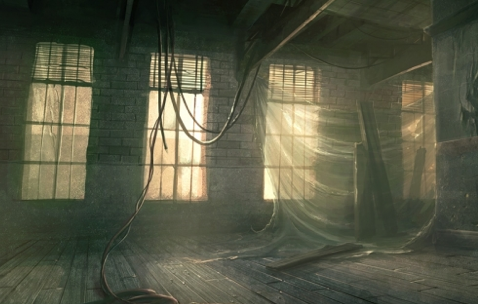
[3] A woman’s (or man’s) jealousy of her (or his) best friend takes over their life . Could link to ‘Othello’ or ‘Medusa’. Think about why. Start this when the woman is with her friend in a frenzy of jealousy…

[4] A model who has always been obsessed with her looks has acid splashed in her face and is disfigured. Could link to ‘Les Grands Seigneurs’, or ‘Mirror’ by Sylvia Plath. Start this with her looking in the mirror then opening her front door… By the way, this story is true. The woman in the picture is called Katie Piper .

[5] Fear of heights : nine year old with family who are in visiting a famous tall tower for the first time. The rest of her family want to go up the tower, but if the child won’t go up, someone will have to stay behind with them. Start this at the foot of the tower…
Want more ideas? Get a complete set plus a teaching scheme with model essays and all resources on my TES Resources shop here .

[6] Small child really wants cake but has been forbidden from taking it down from the shelf. Start this story with the child lusting after the cake, which you should describe – baking, decorating etc – in delicious detail. [ read a short, very funny version of this here ]

[7] A man is obsessed with a woman who does not love him back (or the other way round) . Could link to ‘Havisham’ by Carol Ann Duffy, ‘Give’ or ‘Alaska’ by Simon Armitage or ‘The River God’ by Stevie Smith . Start this when he realises she doesn’t love him back or when he decides to do something about it – get a haircut, stop eating raw onions, go to the gym, pretend that he also loves ‘horoscopes’ and ‘shopping’…

[8] Dangerous Ambition (links to Macbeth). Want the lead role in the school play (or to be head girl/boy)? What will you do to get it? Start this when you realise the lead is up for grabs but you’re not the first choice.

Racing Car driver (motorcross, road or drag racer) is up against his old teammate, now his main rival. Driver needs to win this one or it’s the end of his career. He sees that one of the mechanics on his rival’s car has fixed something up wrong. What does he do?

[9] Jealous woman (or man) chases husband (wife) to find out where they’re going. Could link to ‘Medusa’, ‘Havisham’, or ‘Othello’. Start this story when they decide to chase / follow. Use flashback, or recollection to explain why.

[10] Small child really wants to go to another child’s birthday party but there’s a problem. He has to go to his dad’s that weekend/hasn’t been invited/has to go to the dentist instead. How does he deal with or solve it? Start this story at the moment where the child realises he can’t go. [ read a short, hilarious one here ] III Lost

[11] An old man, who has never cooked or cleaned for himself, has just got home after his wife died (of old age, in hospital). You could link this to ‘Old Age Gets Up’ by Ted Hughes. Now he has to try to do housework – cook, etc. Could be comic / tragic.
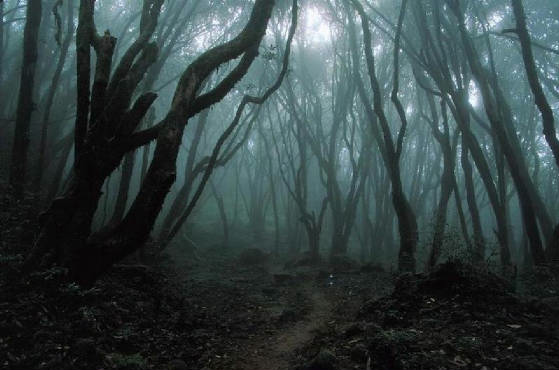
[12] You go for a forest walk (e.g. on a Geography trip or DofE) with someone you don’t like much from school and get lost. Could link to Robert Frost’s poem ‘The Road Not Taken’, ‘Storm in the Black Forest’ by D.H. Lawrence or ‘Wind’ by Ted Hughes. Start this story just before the main character begins to suspect they are lost. Start funny, ends up scary as it starts to go dark. Get describing words for a forest story here .

[13] Parent-Child: In a busy town centre, a mother loses her child who has previously been annoying her . Link this to ‘Mother A Distance Greater…’ by Simon Armitage, ‘Catrin’ by Gillian Clarke or ‘My Father Thought it Bloody Queer’. Start this with the child’s tantrum, mother’s thoughts then quickly move to realising the child is gone.

[14] World famous BMXer (or other sports person, footballer, skateboarder, surfer) is in a car crash – or other accident – and loses his leg. Will he ever ride again? This can link to ‘Out, Out-‘ by Robert Frost. For more on the guy in the photo see this video . Start this story when he wakes up in a hospital bed.

[15] A bsent father returns trying to spend time with his kids. How do they react to seeing him after so long? [this idea is done beautifully in the story, ‘Compass and Torch’ in the AQA anthology Sunlight on the Grass]. You could also link this to ‘Follower’ by Seamus Heaney. Start this when the re’s a knock at the front door.

[16] You win a million pounds on the lottery. Everyone you know wants some. What would you buy? Friendships are ruined. Then you are robbed… Start this when you check your bank balance and there are sooooo many noughts at the end it looks like a bank malfunction. IV Coming of Age
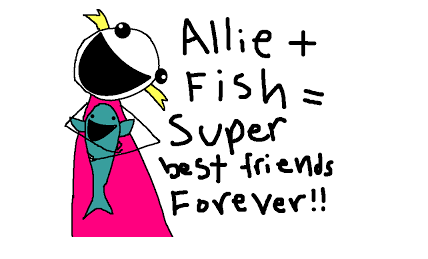
[17] Death of a pet. Ferociously funny, very short story about a girl and a fish [ here ]. Start this when you find the pet… dead, or just before. You can use flashback – when you first got the pet, etc.

[18] Learning a secret you wish you’d never found out – e.g. finding texts on your dad’s mobile from his girlfriend while your parents are still married – or learning that your mum is planning to secretly leave your dad. Start this when you’re just idly messing with the parent’s phone or laptop.
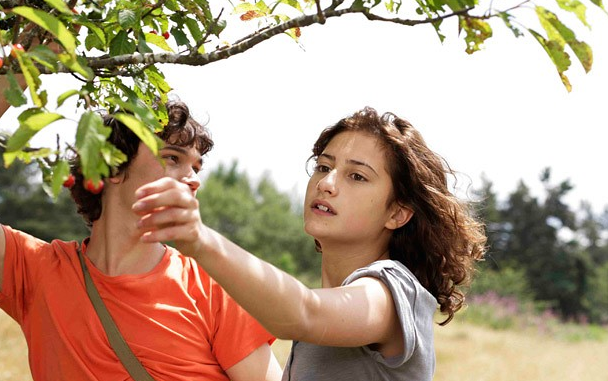
[19] falling in love for the first time , as in Romeo and Juliet. Start this when they see each other or their first proper meeting. Link this to ‘Sonnet 18 Shall I Compare Thee’, ‘Sonnet 116 Let Me Not’, ‘Quickdraw’ or ‘Hour’, by Carol Ann Duffy or ‘To His Coy Mistress’ by Andrew Marvell.

[20] The first time you have to do a really disgusting piece of housework / cook a meal for yourself and how you tackle it. Start this when you realise that no one else is going to do this foul job except you. Read a description of cooking a meal here .
V The Chase / Monsters

[21] You’re camping with your friend in the woods. Then you hear a noise outside (wolves, person, etc). Start this as you’re getting settled to go to sleep – then you hear snuffling (or whatever). Read Bill Bryson’s hilarious account of this exact event, and also an account of surviving a bear attack from the OCR exam paper here.

[22] You have something someone else wants – gold, diamonds etc. They chase you to get it. You choose the landscape: city, ruined derelict warehouses, Brazil, forest, cliffs etc. Start this at the moment you realise someone is following you. You can link this to the final chapter of Lord of the Flies .

[23] You are the last surviving human after the zombie/vampire apocalypse. Now they have found you. This is the plot of ‘I Am Legend’. You can link this to Edwin Muir’s post-apocalyptic poem ‘Horses’, ‘Wind’ by Ted Hughes or the final chapter of Lord of the Flies . Start this at the moment you (or the main character) realises someone is coming towards your hiding place.
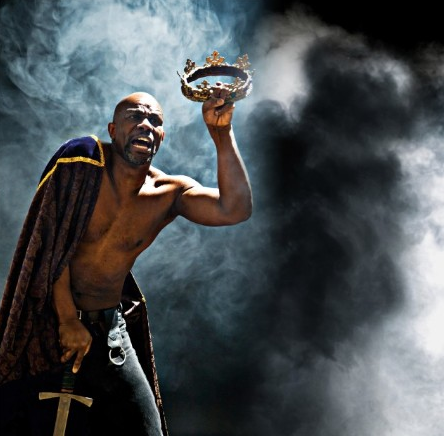
[24] The King is a tyrant who has killed your family. Now you will take revenge . Start this story as you are just about to go through the city walls.
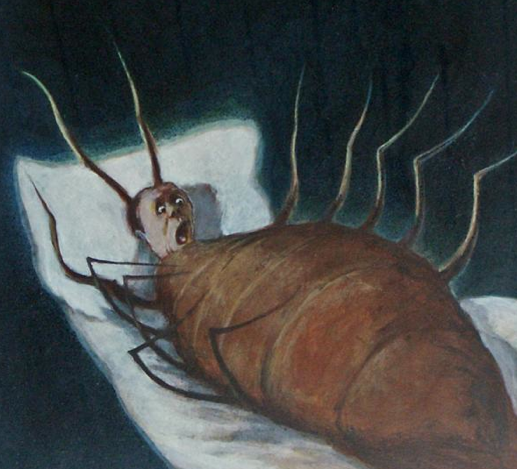
[25] You wake up and discover you have been turned into a giant insect. How does your family react? This is the plot of Kafka’s Metamorphosis. Read this here . Start at the point you wake up, and gradually realise what has happened.
Submit a Comment Cancel reply
Your email address will not be published. Required fields are marked *
Save my name, email, and website in this browser for the next time I comment.
Recent Posts
- Example English Literature Essays For Oxbridge Applications and Coursework
- What is Pathetic Fallacy? Simple Explanation for GCSE, IGCSE, and Common Entrance
- Writing to Describe Photographs of Interesting Places
- Storm on the Island Heaney: Context, Interpretation and Annotation Analysis
- The Prelude, Wordsworth: Context, Analysis, Annotation and Likely Exam Questions GCSE Poetry Exam
Recent Comments

Miss Huttlestone's GCSE English
Because a whole class of wonderful minds are better than just one!
2 Grade 9 Creative Writing Examples
I recently asked my year 11s to pen a piece of description and/or narrative writing for their mini assessment. I gave them the following prompts:
Your school wants you to contribute to a collection of creative writing.
EITHER: Write a short story as suggested by this picture:
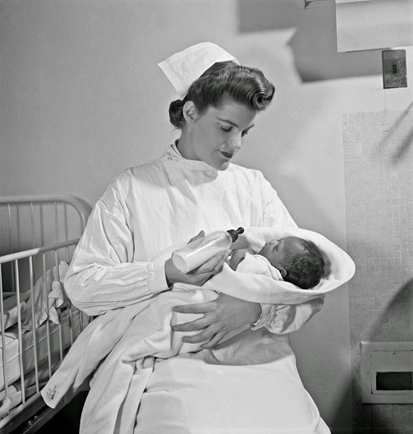
OR: Write a description about a person who has made a strong impression on you.
The following were two COMPELLING and CONVINCING examples of the second choice – one pupil taking ‘you’ as a fictional invitation, the other as a biographical one:
EXAMPLE ONE:
Gradually, I awake and open my eyes only to see the cracked white ceiling which greets me every day. Here I sit, slumped in the bed with the scratchy white sheets hugging me and muffled beeping noises jumping into my ears. Rubbing the sleep crust from my bloodshot eyes, I observe the scene before me. The sound of footsteps overlapping as nurses rush from bed to bed; the metallic tang from stainless steel invading my nostrils; the cold metal bed rail imprisoning and mocking me; the pungent scent of antiseptic troubling me and the blood-curdling cries and moans utterly terrifying me. Using all my strength, I try to imagine I am somewhere else, anywhere else but here.
Crowds, signs, roars: it was 1903 and the suffragette movement had begun. It was a crisp night, refreshing almost and I had taken to the streets. It was like I was possessed by something that night, some urge and deep desire within me that had led me there, surrounded by women like myself. I stood clueless and lost in the crowd; the women yelling ‘Deeds not words’ in unison; passionately parading with large wooden signs and viciously shattering windows with bricks and stones. Despite the violence that was displayed before me, I was not afraid of what was happening and I didn’t deem it unnecessary or improper, in fact I wanted the same as these women, I wanted equality. Abruptly, all of the roars and cheers became muted and faint, one woman walked slowly towards me, her hair messily swooped into an updo, her clothes somewhat dirtied and her chocolate brown corset slightly loosened. There was a glimmer in her eyes as tears seemed to swell within their hazel pools, she seemed inspired, hopeful. After reaching me in the crowd, she held out her hand, gently passing me a sign. Immediately, I clasped it and the yelling and chanting rang loudly in my ears once more. My journey had begun.
Here however, is where it ends. I am aware I do not have much time left, as the doctors have told me so, and spending my last moments in this hospital room is not optimal. However, as I look around I can see beauty within a room which at first glance seems void of it. The hollow medical tubes by my side remind me of the awful act of force feeding I have faced in the past; the shrieks and bawls of patients reflecting the pain women had felt in my time and the bed bars mirroring the prisons we were thrown into and the gates we would chain ourselves too. I know these things may seem far from beautiful, but I can see my past within this room, the power I possessed and the changes I have contributed to today. I know now that I can leave this earth having had an impact. Slowly I close my eyes, I can see her, the women who changed my life many years ago, her name, Emmeline Pankhurst.
EXAMPLE TWO:
I will never forget that day. The hazel pools of her eyes glazed over, and hands delicately placed at her sides. Nobody in the room could quite grasp the fact that this was happening. The crowds of black attire row on row seemed to mimic the thing she loves most in life, the piano. However, this time she had taken the ivory natural keys with her and left everyone else with the sharp tones. You needed both to create beautiful symphonies but all that filled the room was the excruciating silence of her absense. Even the metronone like ticks of the clock seemed to come to a standstill.
It had all began that day, she seemed to open up this whole new world for us to explore together as she placed my fingers onto the keys for the first time. I knew that this was what I was meant to do. She was the most passionately beautiful pianist I had ever seen in my life. Often, I would peer round the oak doorway before my lessons just to catch a glimpse at her. It seemed like nothing in the world mattered to her at the time.
As the years progressed, so did the scope of this world we were exploring. Each sheet of lovingly handwritten sheet music was like a new section of the map we were slowly creating together. Each of her students had their own map. Each as beautiful and each as unique as the pianist. The crotchets and quavers that adorned the staves directed the different paths we could take as my fingers graced the keys. This may not have been a beautiful ballet routine, but this was our dance and it had been carefully choreographed just for us.
That piano room was the safest place in the world. Every inch of it her: the potent scent of her floral perfume; shelves full of scruffy and well loved sheet music; rows upon rows of framed photos of her and her students; the vintage piano which she always kept in tune, it was home. I couldn’t bear the
idea that someone else was going move in and rip away the music room without a second thought. It was her music room.
It was up to me now. Up to me to finish this journey we had begun together.
She may not be with me in person anymore, but she will always live within the world we built together and nothing could ever change that. For she could never truly be gone since she left a piece of her within every one of her students; the passion for piano.

Share this:
Published by.
gcseenglishwithmisshuttlestone
Secondary English teacher in Herts. View all posts by gcseenglishwithmisshuttlestone
2 thoughts on “2 Grade 9 Creative Writing Examples”
This has helped me a lot, I myself am preparing for a narrative test like this and these prompts and descriptive short stories are marvellous! Thank you for sharing this! 🙂
My pleasure!
Leave a comment Cancel reply

- Already have a WordPress.com account? Log in now.
- Subscribe Subscribed
- Copy shortlink
- Report this content
- View post in Reader
- Manage subscriptions
- Collapse this bar
- Student Hacks
- Studying & Revision
- Work & Jobs
GCSE English language: 10+ tips for creative writing

On paper creative writing should be one of the easiest parts of the English language GCSE but you're not alone if you're finding it tricky.
Creative Writing in GCSE exams can take various forms: You may have to tell an entire short story or you could be asked to write a description of a picture.
Here's some top tips when it comes to dealing with your creative writing headaches...

Understanding the Exam Format
First and foremost, it's essential to familiarise yourself with the GCSE English Language exam format. Creative writing usually forms a significant part of the assessment, often as part of a coursework component or in a specific section of the exam. Knowing what is expected in terms of length, format, and content can significantly boost your confidence and performance.
Reading Widely
One of the best ways to enhance your creative writing skills is to read a diverse range of literature. This exposure helps you understand different writing styles, narrative techniques, and genres. By reading extensively, you can develop a sense of what makes a story engaging and learn how to incorporate these elements into your own writing.
Practising Writing Regularly
Consistent practice is key in improving your writing skills. Try to write something every day, whether it's a short story, a descriptive piece, or even just a diary entry. This not only helps improve your writing style and vocabulary but also keeps your creative juices flowing.
Answer The Question
Read it VERY carefully because your answer will only be marked in the context of what was actually asked in the first place, regardless of how well written your piece may have been. Pay special attention to the type of creative writing you're asked to come up with and it's audience (see more below).
Developing Strong Characters and Settings
In creative writing, characters and settings are the heart of your story. Spend time developing characters who are believable and relatable. Similarly, create settings that are vivid and contribute to the mood of the story. Using descriptive language and sensory details can bring your characters and settings to life.
READ MORE: > 10+ GCSE creative writing ideas, prompts and plot lines
Mastering Narrative Structure
A good story has a clear structure - a beginning, middle, and end. The beginning should hook the reader, the middle should build the story, and the end should provide a satisfying conclusion. Think about the plot and how you can weave tension, conflict, and resolution into your narrative.
Showing, Not Telling
'Show, don’t tell' is a golden rule in creative writing. Instead of simply telling the reader what is happening, show them through actions, thoughts, senses, and feelings. For example, rather than simply telling the reader a character is tall, show them that in your writing: "He towered above me like a skyscraper." This approach makes your writing more engaging and immersive.
Take Inspiration From Real Life
Write more convincingly by taking inspiration from your real life experiences and feelings, embellishing where necessary.
Go Out of This World
If you're given a prompt to write the opening of a story involving a storm, it doesn't need to be a storm on earth. Going out of this world allows you to be really descriptive in your language and paint a picture of a completely unique world or species.
Varying Sentence Structure and Vocabulary
Using a range of sentence structures and a rich vocabulary can make your writing more interesting and dynamic. Avoid repetition of words and phrases, and try to use descriptive language that paints a picture for the reader. Consider the senses such as what you might hear, smell, feel or taste.
Don't Leave The Ending To The, Well, End
Some pieces will lend themselves to a nice, easy ending - and in some questions, the ending may even be provided for you - but other times it's not so simple to stop. When it comes to fictional stories, it may well be easier to plan your ending first and work backwards, you don't want to end on a whimper, in a rush or with leftover loose ends from the plot.
Editing and Proofreading
A vital part of writing is reviewing and refining your work. Always leave time to edit and proofread your writing. Look out for common errors like spelling mistakes, grammatical errors, and punctuation issues. Also, consider whether your writing flows logically and whether there's anything you can improve in terms of language and style.
Seeking Feedback
Don’t be afraid to ask teachers, friends, or family members for feedback on your writing. Constructive criticism can provide new perspectives and ideas that can help you improve your writing significantly.
Staying Calm and Confident
Lastly, it's important to stay calm and confident during your exam. Stress and anxiety can hinder your creativity and writing ability. Practice relaxation techniques and believe in your preparation to help you stay focused and composed during the exam.
Remember, creative writing is an opportunity to express yourself and let your imagination run wild. With these tips and consistent practice, you can excel in your GCSE English Language creative writing exam look forward to results day and enjoy the process of crafting your own unique stories.
Thomas Brella is the founder of Student Hacks, starting the website in 2013 while studying at the University of Brighton to share tips and tricks on life as a cash-strapped student. He's now spent over 10 years scoping out the best ways to live on a budget
Follow on Twitter
Like on facebook.

- Creative Writing /
Writing prompts for English Language GCSE
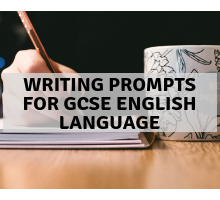
Below I have shared 5 different types of writing prompts for you to use this week with your classes! If you are preparing your classes for GCSE English Language, or any type of creative writing, then these writing will be great for you to use!
Writing a room
Choose one room in your house and list everything that can be: seen, smelt, heard, felt (and tasted).
Write 100 words describing this room using only sensory imagery .
When you have finished writing, ask yourself this question – were you able to create a sense of the room with this tightly controlled word count? If not, consider why? Look at your nouns and adjectives, are they specific and precise? Did you waste words? Make just 5 changes and see if this improves your writing.
Slow your writing down
Both of these writing prompts are great for s-l-o-w writing . Slow writing is the opposite of a quick write. The idea is to write slowly , precisely , carefully , selecting each word intentionally . Slow writing can take 5 minutes with one sentence and 30 minutes with a paragraph. Write these moments of action (or inaction), imagine them in slow-motion . Try and recreate this in your description.
- Imagine your family is eating a meal together. Someone knocks over a drink and it spills across the table. Describe this moment.
- You are waiting . Probably bored . Perhaps a bit annoyed . Walk your reader through the tick, tick, tick of your watch as you wait. It is sunset and you are waiting for your friends, who are late. Describe the setting as the day moves towards darkness.
Writing character
- Sit somewhere public (the cafeteria at school is perfect for this).
- Describe the faces of 5 strangers, show personality through expressions and gestures .
- When you have your 5 descriptions, create some conflicts between them. One character bumps into another character. Or one character asks another for help . How would your character react based on the personality you created for them?
- Find a picture of a new-born baby . Describe in detail its face and features.
- Write a precise description of the feeling of grass beneath bare feet .
- Write a precise and detailed description of a seashell . Ensure every shape and ridge is defined.
12 writing tasks in 12 days
This one is super easy. You can just click here and download the free PDF – inside you will find 12 descriptive writing tasks for your students to complete over 12 days!
So you can download this free one-page worksheet of writing tasks here !
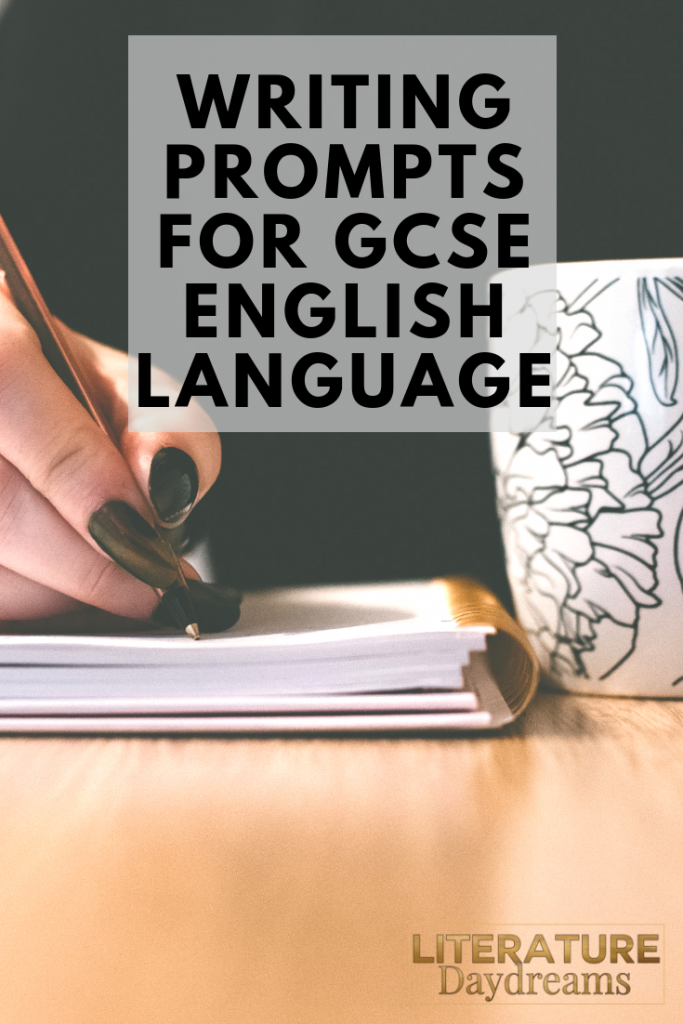
If you love these writing prompts, then sign up for my weekly “Writing on Wednesday” email. Each week I send out fresh and fun writing prompts to all my email friends! Just sign up below.

Love Creative Writing in your classroom!
Are you ready for dynamite descriptive writing in your classroom download your free 3-step guide now.
*I send emails with teaching tips, tricks, and free resources to my subscribers regularly. I value your privacy and you can learn more about how I handle your data in our private policy . You can unsubscribe at any time.
Click Here to Leave a Comment Below
Leave a Reply:
Save my name, email, and website in this browser for the next time I comment.
- Previous post
- kirstienglishtutor
English Language GCSE: Your Step-By-Step Guide to Creative Writing
Are you preparing for your English language GCSE creative writing task? Feeling a mixture of excitement and anxiety about how to channel your creativity into a structured piece of writing that ticks all the boxes for examiners? You're not alone. Creative writing can seem daunting, but with the right approach and understanding, you can craft a story that not only captivates but also earns you top marks. This guide will walk you through the process of developing your narrative, from the initial brainstorming phase to the final touches before 'pens down'!

Understanding the Assessment Criteria
Before embarking on your creative writing journey, gaining a comprehensive understanding of the assessment criteria is imperative. The evaluators of your English language GCSE creative writing piece will scrutinise several key areas: the coherence of your narrative structure, range of ideas you explore, the variety and complexity of your sentence structures, and the precision of your spelling, punctuation, and grammar. Familiarity with these standards is not just a prerequisite but a strategic tool; it enables you to tailor your creative efforts to meet these benchmarks. As you proceed with each stage of your writing, keep these criteria at the forefront of your mind. They serve as a guiding framework, ensuring that every element of your piece, from the initial plot conception to the final dialogue, contributes towards a cohesive, engaging, and technically proficient narrative. Remember, understanding what is expected is the first step to excelling in your creative writing question.
Finding Your Inspiration
We often talk about 'cultural capital' and how evident it is in the most engaging creative pieces we read when examining. Cultural capital is all around you: let curiosity be your guide, leading you through books that span genres and eras, conversations that challenge and provoke, and the rich tapestry of everyday life. Engage with various forms of art - cinema, paintings, music - to stimulate your senses and uncover fresh perspectives. Record fleeting thoughts, overheard conversations, or the peculiarities of a typical day in a dedicated notebook. This reservoir of ideas will become an invaluable resource to tap into in the exam. Always remember, the seeds of great stories lie in the willingness to explore and the readiness to be inspired by the world around you.
Planning Your Story
After identifying a spark of inspiration, it's crucial to channel that energy into a structured plan for your piece. Crafting an outline is essential, so don't skip the plan! Examiners can always spot an unplanned piece as it will fall apart somewhere around the middle. You only have 50 minutes:: you have time to write a moment, not a movie. Imagine a fascinating five minutes in the picture you've been given as stimulus. Plan a conflict, a contrast or a change that could happen within the five minutes. Remember, a well-thought-out plan not only acts as a roadmap for your writing but also ensures that your narrative remains coherent and compelling from start to finish.
Crafting Descriptive Settings
The environment where your narrative unfolds plays a pivotal role in immersing your audience in the world you’ve created. To craft settings that captivate, employ descriptive language that appeals to the senses. Envision your scene's sights, sounds, smells, and textures, and articulate these in your writing to conjure vivid imagery. Consider the emotional tone your setting imparts; a bustling city street can exude energy and possibility, whereas a secluded forest path might evoke tranquillity or mystery. Reflect on how the environment influences your characters’ actions and decisions, adding depth to your story. A well-drawn setting acts not merely as a backdrop but as a character in its own right, with the power to affect mood, reveal aspects of your characters, and even steer the narrative’s direction. Through thoughtful description, your settings can become memorable landscapes that linger in the reader’s mind long after they've turned the final page.
Don't skip the final five minute check
It feels very tempting to write to the last second but I implore you not to. Even if your spelling, punctuation and grammar is already perfect, the last second tweaks and edits you make could take you from one grade into the next.
Found this helpful? You can sign up for my creative writing guided revision session here .
Recent posts.
5 simple steps to analysing quotations

Paper 1 Q5 - Ideas
focus: description / narrative marks: 40 time: 45 mins.
Ideas for creative writing can come from various places.
The picture
There will always be a picture to inspire you. It could be linked to a description or a narrative. Remember that you can go beyond the picture and interpret it in any way you like. It's there to help you, not restrict you. For example, in the picture of the market in the example question here you could imagine people, food and objects that aren't in the picture.
The reading source
The topics for the writing will be linked to the reading source, so you can get inspiration from it. In the example question we looked at here, the story in Section A involved a girl being left on the roadside by her father. This might give you ideas for a story about being 'abandoned'.
Books/films/TV/games
It's fine to take ideas from other things you've seen or read, but try to make it your own. Change names -the examiner doesn't want to read about another Harry Potter or Luke Skywalker. Plots for whole films or books are far to complicated to reproduce in a short story. Just take a particular moment or scene for inspiration. For example, the moment a child finds out they have magical powers or when a young man finds out who his father is.
Using events from your own life is fine - just remember not to write it in a factual way. It needs to be full of descriptive language.
Paper 1 Question 5: Creative Writing ( AQA GCSE English Language )
Revision note.

Paper 1 Question 5: Creative Writing
In Question 5, you will be set a question that asks you to write either a piece of creative writing or a piece of descriptive writing. Here, we will focus on the creative writing task, which is often structured like a short story, under the following sub-topics (click to go straight to that sub-topic):
Overview of Paper 1 Question 5
How to approach paper 1 question 5, characterisation, steps to success for question 5, exam tips for question 5.
Paper 1 Question 5 is the writing question. It asks you to apply what you know about imaginative and creative fiction writing, such as in the text you read in Section A, and use these same techniques in your own writing. AO5 rewards you for your ideas, as well as the style and the fluency of your writing. As this task is worth 50% of the paper, it is worth making sure you set aside enough time to answer it well. You should allow 45 minutes for this task.
The Assessment Objectives for Question 5 are AO5 and AO6:
|
Communicate clearly, effectively and imaginatively, selecting and adapting tone, style and register for different forms, purposes and audiences Organise information and ideas, using structural and grammatical features to support coherence and cohesion of texts |
|
Use a range of vocabulary and sentence structures for clarity, purpose and effect, with accurate spelling and punctuation |
|
|
It is important to remember that writers plan their texts deliberately to make the reader respond in certain ways, and think and feel certain things. This task in Question 5 asks you to think about how you can effectively engage your reader and produce a cohesive piece of creative writing.
When you reach Question 5, you will already have read an example of creative writing. You can use the ideas and structure to inform your answer. You should spend some time thinking about the question: not only the content, but also the order of your ideas. An effective piece of creative writing considers plot, setting and characterisation .
In your answer you must:
- Plan your writing and order the information into roughly five to seven paragraphs
- Consider the relevant information you need to give in order to create engaging characters
- Plan your setting to create an effective mood
- Use language techniques relevant to the style of writing
Question 5 tests your ability to create a text which is constructed in an appropriate manner.
The creative writing question assesses your skill in crafting a convincing piece of creative writing or short story. The question will be worded according to a specific task, for example:

It is worth remembering that you will be given a choice of two tasks in the exam: one will be a creative writing task, and the other will be a descriptive writing task. One will also give you a picture as a prompt for your piece of writing, but this could be to write a story or a description, so it is important that you read both options carefully.
Below are some points on how you might approach the task “Write a story with the title ‘Abandoned’”. It is divided into plot, setting and characterisation.
This task asks you to write a short story. This means you are required to plan your response carefully as you have limited time to create a cohesive plot. It is best to plan how your story will end before you begin writing so that you are in control of your story. Writing a response which has not been planned is likely to have an abrupt ending, or no ending at all, which does not satisfy readers or get you high marks. Your character development will lead the plot; you should decide if your story ends with a clear resolution or with a cliffhanger. Your resolution could be happy, or you can create a tragic ending.
There are lots of different narrative structures or arcs you could use to plan your story. Bearing in mind you only have 45 minutes, including planning time, your story needs to be controlled and concise. One of the easiest ways to achieve this is to consider Freytag’s Pyramid:

|
| Stick to one main setting and start at the location: |
| Hook your reader: | |
| Decide which narrative perspective and tense you are going to write your story in: | |
| Employ the five senses to create an atmosphere: | |
| This paragraph could end with an “inciting incident”, which prompts the rising action and moves the story forward | |
| | This paragraph should build tension, drama or interest: |
| This paragraph should also develop your character(s): | |
| This is the turning point of your story: | |
| Your protagonist could face an external problem, or an internal choice or dilemma: | |
| You should vary your sentence structure, length and language here for dramatic effect | |
| What happens in this paragraph should be as a direct result of the climax paragraph: | |
| It also should focus on your characters’ thoughts and feelings as a result of the climax of the story: | |
| You can choose to resolve your story, or end on a cliff-hanger: | |
| Your setting and atmosphere could reflect a change from the setting or atmosphere you established in your opening paragraph: | |
As this task assesses the ability to communicate clearly, effectively and imaginatively, it is important to consider how to use language constructively in a short story to convey an atmosphere or mood. Building an effective setting is key as it contributes to atmosphere and mood.
- Your setting should reflect your main character’s mood:
- You may know this as pathetic fallacy , which reflects the character’s mood in the environment, e.g., “the lonely road”
- As your setting reflects your character’s mood, your setting may change as the story progresses:
- Contrasting scenes is an effective way to convey ideas and engage your reader
- For example, your story may have started on a sunny afternoon, but may end as the sun sets or as a storm approaches
- Whatever way you decide to contrast the scenes, ensure it reflects your character’s mood
- The best answers have built a clear setting before introducing other information, such as introducing character:
- Describing setting is best done with sensory language as we experience places with our five senses
- This means you could describe the dark, light, colours, sounds, smells and weather
- The best way to clearly create setting is to allow an entire paragraph to describe the scene without confusing readers with other information like who is there
- Ensure all of your descriptive language builds the same mood and avoid mixing ideas. For example: “The graveyard was dark, cold and smelled like fragrant flowers” is confusing for your reader
- However, do not give too much away all at once!
- Keep your reader guessing and asking questions, such as “What is going on?”, “Why is this like this?” and “Who is this?”
- Think of establishing a setting a bit like the game “Taboo”, in which you have to describe something without stating explicitly what it is
Remember, Question 5 requires an extended written response. Therefore, the most effective stories will demonstrate a well-planned response which has considered what information is relevant to the reader and the most effective way to order and structure the narrative.
This question asks you to create a short story and therefore you will need to build some elements of detailed characterisation. This means you need to consider what your character(s) represent. They may represent an idea, such as being the victim of abandonment, or as a villain to represent injustice or evil. It is best to limit yourself to two characters in the time you have.
Well-rounded characters are taken on a journey in which a character undergoes some form of development or change. The mark scheme rewards answers which clearly and effectively convey ideas, meaning that you need to consider the most effective ways of building a character in a short piece of writing. Ideally, you should focus more on indirect characterisation than direct characterisation:
|
|
|
Here, we will consider how to effectively plan your character(s) to engage your reader. This is what the examiner is looking for in your answer:
|
| |
| Your character’s appearance may not always be relevant: , remember that it is rare we describe our own appearance perspective can describe appearance more effectively |
| One of the most effective ways to describe a character is through their movements: and can be used to effectively build characterisation |
|
| If you use the perspective, a monologue helps readers engage with the character: will help your reader understand your character better |
|
| Dialogue can convey the relationships between your characters and provide insights into what other characters think about each other: |
- Read the two task options carefully:
- Highlight whether you are writing a story or a descriptive piece
- Spend five minutes planning your writing:
- Use a mind-map or a representation of Freytag’s Pyramid to plot out your story
- Plan your characters - who they are, what they represent and how you will convey this
- Decide on your narrative perspective - first or third person
- Write down some reminders of figurative language or literary techniques to include to add interest and detail to your writing
- Write your story, sticking to your plan
- Try to leave five minutes at the end to re-read your writing carefully, correcting any obvious mistakes you have made
- Avoid confusing ideas in a paragraph:
- Each paragraph should focus on one idea
- Ensure all words are chosen to contribute to the effect you want to create
- Do not confuse the tenses in a paragraph:
- If you use a flashback, ensure it is in the past tense
- If you use present-tense verbs for effect, ensure they are all consistently in present tense
- Do not over-use dialogue:
- Only use dialogue if it drives forward the plot and you are able to punctuate it correctly
- The highest marks are awarded for students who use complex and sophisticated vocabulary
|
|
You've read 0 of your 10 free revision notes
Unlock more, it's free, join the 100,000 + students that ❤️ save my exams.
the (exam) results speak for themselves:
Did this page help you?
Author: Sam Evans
Sam is a graduate in English Language and Literature, specialising in journalism and the history and varieties of English. Before teaching, Sam had a career in tourism in South Africa and Europe. After training to become a teacher, Sam taught English Language and Literature and Communication and Culture in three outstanding secondary schools across England. Her teaching experience began in nursery schools, where she achieved a qualification in Early Years Foundation education. Sam went on to train in the SEN department of a secondary school, working closely with visually impaired students. From there, she went on to manage KS3 and GCSE English language and literature, as well as leading the Sixth Form curriculum. During this time, Sam trained as an examiner in AQA and iGCSE and has marked GCSE English examinations across a range of specifications. She went on to tutor Business English, English as a Second Language and international GCSE English to students around the world, as well as tutoring A level, GCSE and KS3 students for educational provisions in England. Sam freelances as a ghostwriter on novels, business articles and reports, academic resources and non-fiction books.
- Teaching & Learning
GCSE English: 3 tips to improve creative writing

Picture the scene: a published author sits down at a desk and knocks out a fully formed story with no prior planning. In 45 minutes. By hand.
It has all the components that make a story a story: interesting characterisation, rich and detailed description, a plausible plot.
It just wouldn’t happen. So why is it that we expect this of pupils?
At secondary school, the lower year groups have the luxury of immersing themselves in rich examples and then time to craft their narratives, honing their characterisation and playing with structure.
Ideas to boost GCSE English creative writing
In an ideal world, we would extend this to GCSE - but with 25 per cent of the final grade involving unseen story-writing or descriptive tasks, how can we best prepare students for success? Here are my favourite strategies:
1. Give students the steps in the story
Sending students into an assessment or exam in which they have no idea what they’re going to be faced with is counterproductive. As teachers, we know the structures required for success. In creative writing, the difference between a successful and an unsuccessful short story is a sense of a “complete” story - one that follows Freytag’s pyramid .
This is a good starting point for preparing students, as it lends itself to sections that can be included in a checklist or a structure strip. We can’t say what the topic or title of this story will be, but we can give students the bones of the story.
I like to ensure that students know that they need to write within a set of parameters: they need to describe a snapshot of a moment in time; there needs to be detailed description, a finite amount of characters and sparse dialogue (I suggest no more than three lines in the entire piece).
Writing to these “rules” is freeing, as it reduces the realm of possibilities and allows students to focus on the task at hand.
2. Steal a character from literature
JK Rowling is on the record as saying that Harry Potter “just sort of strolled into my head…fully formed”. This is not likely to be the case for students in the midst of an exam.
Authentic, sympathetic characterisation is difficult: we may identify character archetypes through the study of stories, but the creation of these under pressure, from scratch, is a big ask. We have to question what, realistically, the average 15- or 16-year-old can come up with.
Think of it like this: over their time at school, students have read, been taught or seen literally hundreds of stories, all with rich and varying characters whom they could incorporate into a story of their own.
By including or referring to a character from wider literature, they are showing the examiner that they can manipulate characters and events to create something new.
I have seen wonderful stories in which Jennet Humfrye from The Woman in Black has been transported to a modern-day black cab, her Gothic demeanour pervading the atmosphere around her, or a paranoid Macbeth has been seen, ranting to himself in an empty bus station.
3. Use film clips for inspiration
Another powerful way to stimulate story-writing is to get pupils writing from moving image. I have found that short clips in which there is no speech can often be the most powerful.
In the past, I have used the music video for City Girl from the Lost in Translation soundtrack. The rich visuals of the Tokyo cityscape and the relative ambiguity of the female protagonist mean there is a lot to write about.
In a similar vein, a clip from 28 Days Later , in which the male protagonist finds himself alone in a seemingly abandoned London, provides much food for thought. The repetition of a single word - “Hello” - provides a recurring motif for pupils to structure their words around.
Another powerful clip is taken from the TV series Lost and starts with the snapping open of a human eye - a fascinating place to start and play with structure for students of all writing abilities.
Whichever you use, you’ll find that students respond positively to the movie providing them with ideas, and allowing their focus to be on using their writing skills.
Laura May Rowlands is head of English in a secondary school in Hampshire
You need a Tes subscription to read this article
Subscribe now to read this article and get other subscriber-only content:.
- Unlimited access to all Tes magazine content
- Exclusive subscriber-only stories
- Award-winning email newsletters
Already a subscriber? Log in
You need a subscription to read this article
Subscribe now to read this article and get other subscriber-only content, including:.
topics in this article


IMAGES
VIDEO
COMMENTS
Tips and strategies for writing a high scoring GCSE creative writing paper: 1. Learn the formats. Know the different formats and conventions of the different GCSE writing tasks. There is a standard layout for a leaflet, for example, where including contact details and a series of bullet points is part of the mark scheme.
Retold Fable. Prompt: Modernize a classic fable or story, such as the Boy Who Cried Wolf, in a contemporary setting. Potential Story Directions: The story could be set in a modern city, exploring current social issues. It might be told from a different perspective, offering a fresh take on the moral of the story.
II. Desire. [6] Small child really wants cake but has been forbidden from taking it down from the shelf. Start this story with the child lusting after the cake, which you should describe - baking, decorating etc - in delicious detail. [read a short, very funny version of this here]
2 Grade 9 Creative Writing Examples. I recently asked my year 11s to pen a piece of description and/or narrative writing for their mini assessment. I gave them the following prompts: Your school wants you to contribute to a collection of creative writing. EITHER: Write a short story as suggested by this picture:
In Paper 1 Question 5 you will be presented with a choice of two writing tasks and a stimulus image. One task will ask you to write descriptively, most likely based on the image, and the other question will ask you to write a story, based on a statement or title. The task requires you to write for a specific purpose and in a specific form.
First and foremost, it's essential to familiarise yourself with the GCSE English Language exam format. Creative writing usually forms a significant part of the assessment, often as part of a coursework component or in a specific section of the exam. ... READ MORE: > 10+ GCSE creative writing ideas, prompts and plot lines. Mastering Narrative ...
Slow your writing down. Both of these writing prompts are great for s-l-o-w writing. Slow writing is the opposite of a quick write. The idea is to write slowly, precisely, carefully, selecting each word intentionally. Slow writing can take 5 minutes with one sentence and 30 minutes with a paragraph. Write these moments of action (or inaction ...
Don't just stick to full stops and commas in your writing. As long as you use it correctly, get creative with the types of punctuation you use in your answer for a higher AO6 mark. For example, exclamation marks and question marks to create a more conversational tone between the author and the reader. Hyphens, brackets and colons are just a ...
Before embarking on your creative writing journey, gaining a comprehensive understanding of the assessment criteria is imperative. The evaluators of your English language GCSE creative writing piece will scrutinise several key areas: the coherence of your narrative structure, range of ideas you explore, the variety and complexity of your sentence structures, and the precision of your spelling ...
Focus: Description / Narrative Marks: 40 Time: 45 mins. Ideas for creative writing can come from various places. The picture. There will always be a picture to inspire you. It could be linked to a description or a narrative. Remember that you can go beyond the picture and interpret it in any way you like. It's there to help you, not restrict you.
AQA GCSE English Language Module Two: Exploring Creative Writing 7 cannot 'know' about it unless someone else in the story tells your character about it. In this way, it can be a restricted narrative. Some writers use this potential limitation for particular effect, as with F Scott's Fitzgerald's The Great Gatsby, where the narrator's
Overview of Paper 1 Question 5. Paper 1 Question 5 is the writing question. It asks you to apply what you know about imaginative and creative fiction writing, such as in the text you read in Section A, and use these same techniques in your own writing. AO5 rewards you for your ideas, as well as the style and the fluency of your writing.
Chapter 8: Writing creatively 117 Chapter 8 Writing creatively English Language GCSE Which AOs are covered? AO5 Communicate clearly, effectively and imaginatively, selecting and adapting tone, style and register for different forms, purposes and audiences. Organise information and ideas, using structural and grammatical features to support ...
Break down GCSE English Language Creative Writing into an accessible format with our series of dedicated lessons, beginning with Lesson 1 on structure. The key focus of this lesson is to explore how students can structure a narrative for maximum effect. After completing this GCSE English Language Creative Writing lesson, students will be able to: Understand the different stages of a story ...
Practise GCSE Creative Writing Questions with our Whole Unit Pack, featuring all eight of our Creative Writing lessons designed for GCSE English Language students. With each lesson pack included and relevant supplementary resources, this resource contains absolutely everything you need to develop your students' creative writing skills. Show more.
1. Give students the steps in the story. Sending students into an assessment or exam in which they have no idea what they're going to be faced with is counterproductive. As teachers, we know the structures required for success. In creative writing, the difference between a successful and an unsuccessful short story is a sense of a "complete ...
5.0 (9 reviews) Use Beyond's GCSE creative writing prompts in English lessons to help your students to move through any creative blocks that might be preventing them from writing. Including a range of GCSE creative writing prompt lessons, with a focus on titles, openings, endings and more, everything you need to break down creative writing ...